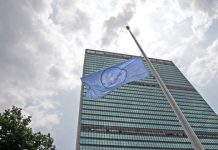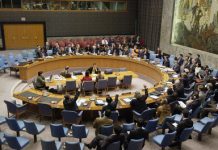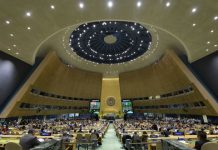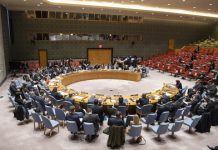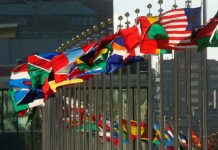In his fourth and final speech to the General Assembly, Mr. Biden stated, “The choices we make today will determine our future for decades to come.” He also reflected on his more than 50 years in public life and counseled other leaders that “some things are more important than staying in power.”
While he sounded an optimistic note about the international community’s ability to pull together to tackle global crises, he highlighted key problems that are yet to be solved.
Indeed, the world “must not flinch from the horrors” of Hamas’ 7 October attack on Israel, President Biden said and called for the return of the Israeli hostages taken during that attack and a ceasefire that will end the current conflict in the Gaza Strip.
He underscored that innocent civilians in Gaza are “also going through hell, thousands and thousands killed including aid workers” and stressed that since 7 October, the United States has been determined to prevent a wider war that engulfs the entire region.
“Hezbollah, unprovoked, joined the October 7th attack, launching rockets into Israel. Almost a year later, too many on each side of the Israeli-Lebanon border remain displaced. Full-scale war is not in anyone’s interest,” said President Biden.
He went on to warn that the world “cannot look away” from Russia’s invasion of Ukraine, but said “the good news is [Russian President Vladimir] Putin’s war has failed at its core aim … he set out to destroy Ukraine, but Ukraine is still free. He set out to weaken NATO, but NATO is bigger, stronger, more united than ever before.”
The US President also drew attention to the “bloody civil war” in Sudan, which he said has “unleashed one of the world’s worst humanitarian crises.” As such, he called for the international community to increase pressure to end the conflict.
In the face of these and other challenges, including the responsible use of artificial intelligence, Mr. Biden asked the assembled leaders: “Will we stand behind the principles that unite us? Will we stand firm against aggression? Will we end the conflicts that are raging today? Will we take on global challenges like climate change, hunger and disease?”
He argued that there is always a “way forward,” and stressed: “Things can get better…We should never forget that. I’ve seen that throughout my career.”
Source of original article: United Nations (news.un.org). Photo credit: UN. The content of this article does not necessarily reflect the views or opinion of Global Diaspora News (www.globaldiasporanews.com).
To submit your press release: (https://www.globaldiasporanews.com/pr).
To advertise on Global Diaspora News: (www.globaldiasporanews.com/ads).
Sign up to Global Diaspora News newsletter (https://www.globaldiasporanews.com/newsletter/) to start receiving updates and opportunities directly in your email inbox for free.



